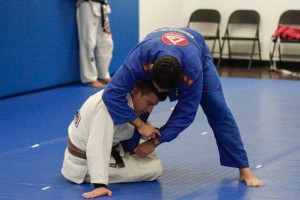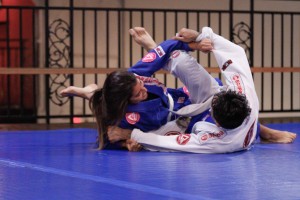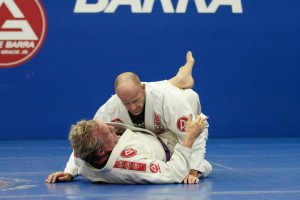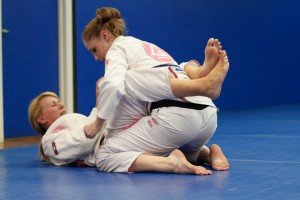4 Ways to be a Good Partner in Bjj Class
The majority of the time in any bjj class, you will be working together with a training partner. During the technique portion of the class you will drill the techniques demonstrated by the instructor and work through the details with your partner. A great training partner is worth their weight in Worlds medals, and a poor partner can make your training session a frustrating waste of time for both.

Here are 4 tips for being a great training partner.
1) Don’t be a flopper
In watching some beginners in the fundamentals class, the person on the bottom in the guard was having difficulty placing a butterfly hook to perform a butterfly sweep.
The partner, on top position, had gone limp and was laying face down, prone on the floor. As limp and lifeless as a mannequin.  I could see the problem.
I could see the problem.
I asked the top person if they would actually fight like that? “Would you simply go completely limp and collapse your structure and lay face down in a real match?”
Then why would you do that when trying to simulate a match situation? Remember that one must mimic the weight distribution, limb positions and posture that a real live opponent would be doing.
2) Resistance is a hindrance
This is the extreme opposite of the flopper. This partner is as stiff and rigid as though they had premature rigor mortis!
More than once while demonstrating a technique to the class, I have had the demonstration student tense up and start fighting the move even as I set the initial grips.
I have to pause and tell them “Hey, relax your limbs – I am just trying to show the move!”  When you are learning a complex technique for the first time, you need some compliance from your partner. The countering and “what if he does this” should wait until you have acquired some competence with the first technique.
When you are learning a complex technique for the first time, you need some compliance from your partner. The countering and “what if he does this” should wait until you have acquired some competence with the first technique.
It is rare to get the technique perfectly on your first few tries. A stiff unyielding partner interferes with your early, imperfect movements as you struggle to find the correct angles.
The partner who is countering and resisting as you try to learn has to relax and allow the partner to perform some repetitions before introducing the factor of resistance.
3) Stay on topic
Your instructor is showing you a specific position because they consider it important for your development and appropriate to your experience level.
But the partner, bored with the basic technique, does a few half-hearted reps of that day’s technique and then wants to show you a “really cool move that he saw on Youtube”. The technique forgotten, he proceeds to stumble through a poorly understood and horribly complicated lapel sweep that might work on an opponent who had consumed extra drowsy-strength cough medicine. Even the most basic techniques have many levels of detail that the black belt knows, which magnify their effectiveness. Let’s say that a sweep has 12 fine details required for the optimal level of leverage and mechanics.
Even the most basic techniques have many levels of detail that the black belt knows, which magnify their effectiveness. Let’s say that a sweep has 12 fine details required for the optimal level of leverage and mechanics.
Even though you have seen the sweep before, you may only know 6 of those details! As you progress through the bjj belt system you will enjoy continuous “rediscovery” of old techniques that you had dismissed as “old and don’t work anymore”. With a new additional, crucial detail, that old technique suddenly starts working for you.
Try to stay on track in the lesson that day.
4) Leave the problems off of the mat
For many of us, our time at jiu-jitsu class is a respite from the rest of our worldly responsibilities. A time when we get to do what we WANT to do, not what we HAVE to do.
When you bow and step onto the mat, that is your time to clear your mind and focus on training bjj.
One of my favorite quotes is by boxer Sugar Ray Leonard “When I train, I am free.” Then your stressed out partner catches your ear and launches into a rant about his horrible micro-managing boss and how the entire company would go bankrupt if not for “how important I am down at the widget factory. Why just today the idiot boss said….”
Then your stressed out partner catches your ear and launches into a rant about his horrible micro-managing boss and how the entire company would go bankrupt if not for “how important I am down at the widget factory. Why just today the idiot boss said….”
Whoa! There goes your carefully cultivated mental state, and you are involuntarily drawn into their workplace drama.
My advice is to stop them and diplomatically say, “Hey friend, we are here to enjoy jiu-jitsu. Why don’t we talk about these problems after the class?”
Try not to bring your problems onto the mat and crate a negative atmosphere for your training partners.
What are your suggestions for how to be a great training partner?
Credits: Mark Mullen
Gracie Barra Black belt based in Taipei, Taiwan
Twitter: @MarkMullenBJ
